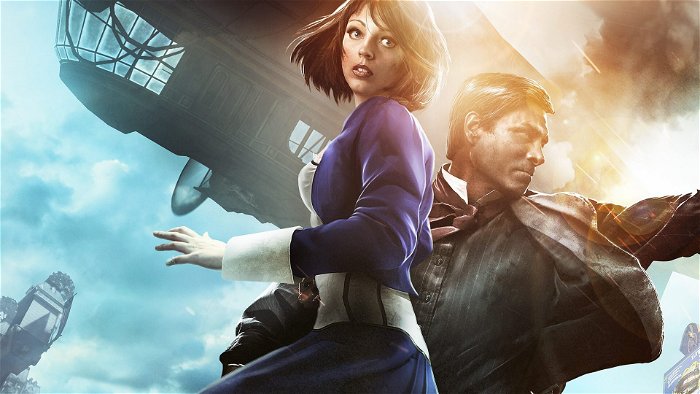Ending a movie, TV show, or book is difficult. How do you, as a creator, properly conclude a story that can run for dozens of hours? How do you produce a satisfying send-off for all of the characters, close every single plot thread, and write a fitting ending for, hopefully, a great piece of entertainment? It’s one of the biggest challenges for artists, as the journey is almost always better than the ending. However, the three mediums mentioned—books, films, and shows—generally have decent conclusions. There are of course a few poor exceptions, like The Sopranos. When it comes to videogame endings, however, they’re still mostly awful and remain one of the biggest problems in the medium.

For a long time, frustrating final boss battles were a popular trend, especially during the PlayStation 2, GameCube, and Xbox era. Resident Evil and Onimusha—including all of the entries in both series, arguably—end with a disappointing dud, forcing the player to go up against a generic final baddie. Resident Evil 4 has you fire a rocket launcher at the villain, with the conflict lasting less than five minutes.
One of the best games of the past decade, BioShock, is also guilty of throwing a final fight that puts the focus on the combat, which is the game’s biggest weakness. It’s not challenging, and doesn’t test all of the skills the player has learned up to that point. Creative Director Ken Levine and the rest of the team at Irrational Games have stated that, if they had the chance, they’d go back and rework the last half hour of a title that’s otherwise a masterpiece. The Assassin’s Creed franchise has had the same issue, with most of the series entries ending in a confusing way, leaving the player wondering if Ubisoft even has a conclusion in mind for its biggest IP.

More recently, ’s otherwise intriguing story ended in such an abrupt way that it made the whole game feel incomplete. The dystopian sci-fi epic is yet another game that’s victim to a boring final boss battle and a conclusion that doesn’t wrap up all of the loose plot threads. It’s too open ended. So, the real question here is, why do developers struggle with endings? Well, when making a 10-hour experience that needs to be filled with engaging gameplay, beautiful art design, clever level design, and a memorable story, one of the least of your worries is creating a satisfying conclusion. As a game creator, you just want to make it through development as there’s always fear of not being able to actually finish your product. There’s also the huge task of combining the many different elements in one captivating final level or confrontation.
A role-playing game that struggled with providing a satisfactory ending is Mass Effect 3, and there was a huge uproar and fan backlash over it. Up to that point, players spent hundreds of hours making choices and shaping Mass Effect’s ambitious sci-fi tale, under the assumption that each player had crafted a completely different experience. Of course, developer Bioware struggled with seeing everyone’s choices through right at the end, instead opting to create its own ending. That is understandable, as it would’ve been challenging to do otherwise.
A recent release that does put a great pin on an entire franchise and story arc is Naughty Dog’s Uncharted 4: A Thief’s End. Without giving away too much, the final scenes touch back on all four of Nathan Drake’s adventures, while also putting on a bow on all of the characters you’ve grown to love. Now, before you can reach that scene, which is essentially an epilogue, you do have to fight a final boss. But unlike the previous battles with the series’ villains—Uncharted 2’s frustrating Lazaravic fight is a total pain—Uncharted 4’s final confrontation is a gorgeous and personal swordfight, and it’s actually quite enjoyable.

Another great example of how to properly end a game is BioShock Infinite. While Ken Levine has said several times he didn’t have the resources, nor the time, to create a good ending for the first BioShock title, he made sure to not make the same mistake twice. Not only is Infinite’s ending memorable—it will stay on your mind for quite some time—it changes your perspective on the entire series. The conclusion is well written and is one of the greatest twists in the medium. Another reason why it works so well is that the game often references and shows several signs of time paradoxes and Columbia’s worrying state. When you play the game a second time, you begin to notice that Levine and his team were dangling the answers right in front of your eyes, but you were just too ignorant at that point to notice.
An ending that’s a bit more controversial is what Joel, the main character, does during the final scenes in The Last of Us. Naughty Dog falsely presents a choice to the player for the first time in the game; do you save Ellie or let the Fireflies experiment on her to have a chance at saving mankind? But the studio takes that chance away from you and tells its own story, an ending in which you feel like the villain instead of the hero. Naughty Dog wraps up the excellent 15-hour journey you’ve had with a subtle final scene, one that doesn’t contain any real answers. While the scene itself is quite impactful, The Last of Us does suffer from a humdrum final combat encounter. The game throws a slew of powerful enemies at you that are a chore to combat. Naughty Dog, unfortunately, felt the need to add a long combat sequence right there at the end.

That’s probably the biggest issue with videogame endings in general; studios aren’t brave enough to just end a game without any combat. Why do we need a generic final boss battle? Why do we have to fight countless enemies in combat encounters that fail to match up with some of the better gameplay moments earlier in the experience? BioShock is a perfect example of a title that could’ve just ended with a choice the player can make, without actually engaging in an arduous battle with the villain. The best part of that game is its story and writing, so put the focus on that instead and you’ll wind up with the a much better conclusion like BioShock Infinite’s. Hopefully, the more this industry matures and game creators continue to tell better stories in their games, they’ll figure out a way to successfully marry gameplay with narrative in those final scenes.




